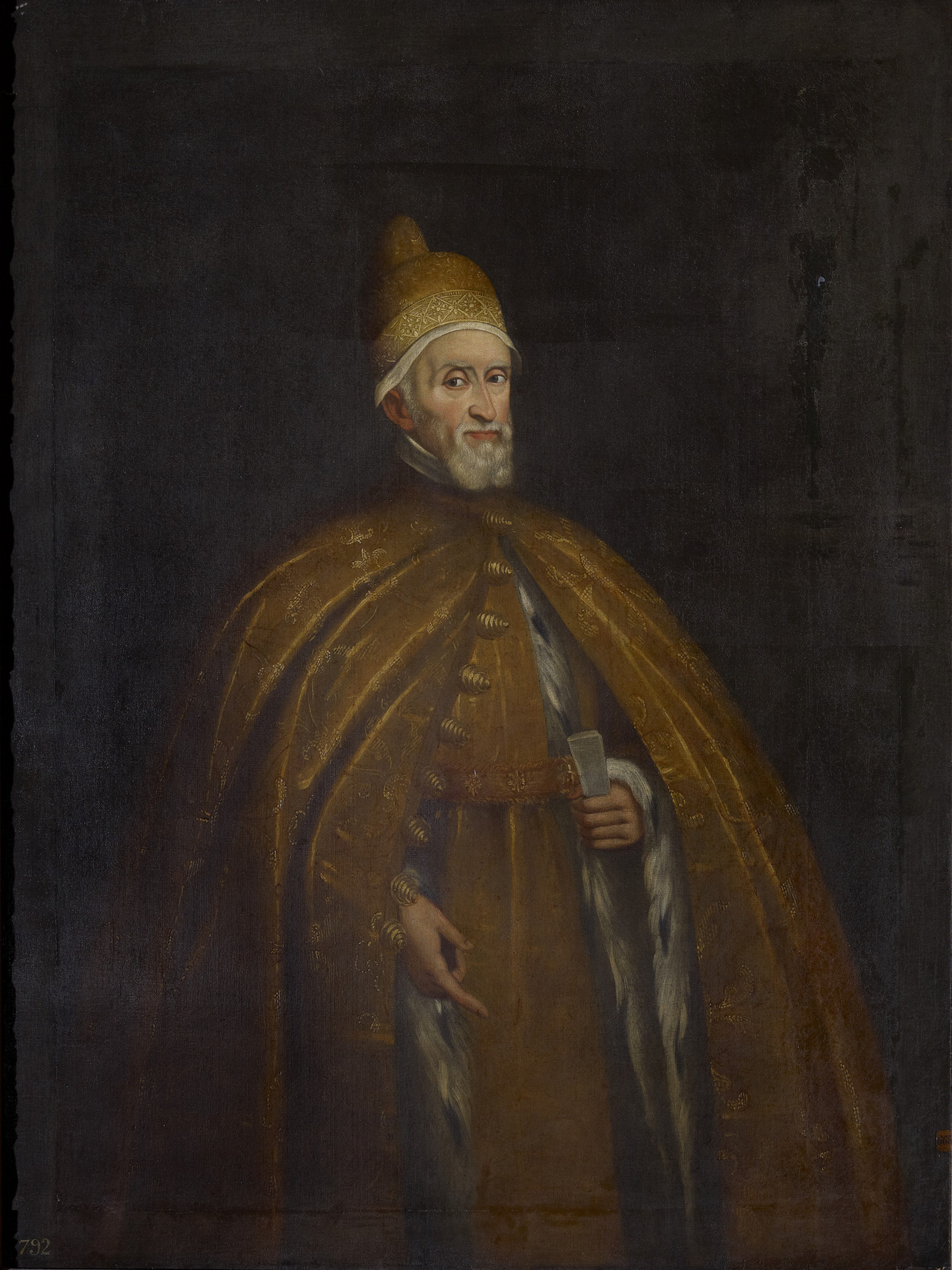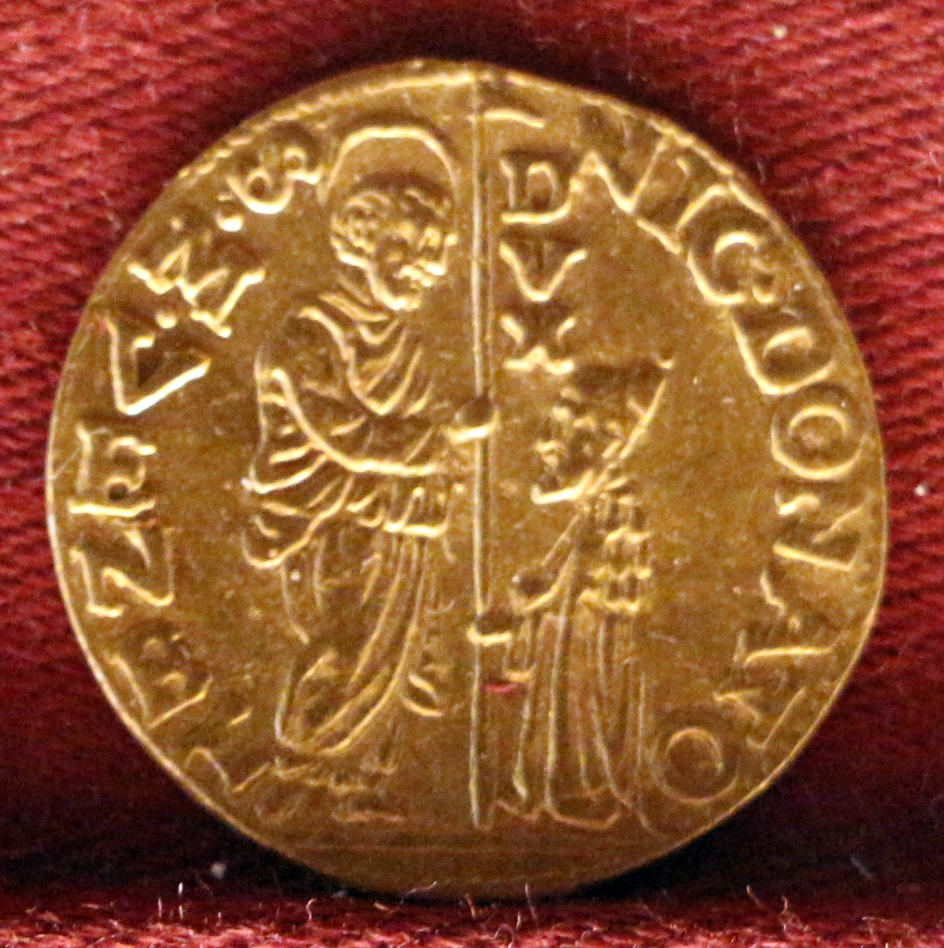1. Overview
Nicolò Donà (also spelled Nicolò Donato), born on January 28, 1539, was the 93rd Doge of Venice, serving for an exceptionally brief period in 1618. His reign, lasting just 35 days from his election on April 5 until his death on May 8, occurred during a critical and tumultuous socio-political era for the Republic of Venice. At this time, Venice was embroiled in the Bedmar Conspiracy, a significant plot orchestrated by the Spanish Ambassador to destabilize the Republic. Donà's election, reportedly influenced by bribery, and his personal reputation for extreme stinginess, stood in stark contrast to the pressing need for strong, unifying leadership amidst external threats to Venetian sovereignty. His short tenure, therefore, is primarily remembered for its brevity and its coincidence with a major political crisis that continued to unfold.

2. Biography
Nicolò Donà's personal life and background shaped his character and later political career, marked by a significant accumulation of wealth and a notable reputation for frugality.
2.1. Birth and Family
Nicolò Donà was born in Venice on January 28, 1539. He was the son of Giovanni Donà and Isabetta Morosini, members of prominent Venetian families. The Donà family was a long-standing and influential noble family within the Republic of Venice, known for their contributions to trade and public life.
2.2. Education and Early Career
Donà pursued his education in Padua before embarking on a career in trade. Through his commercial ventures, he amassed a considerable fortune, establishing himself as a wealthy individual. Despite his immense wealth, he maintained a reputation for being extremely parsimonious throughout his life.
2.3. Personal Characteristics
Donà was widely known for his stinginess, a trait that persisted despite his vast fortune. He never married and, upon his death, bequeathed his entire estate to his brother, Francesco Donà, and his nephew, Pietro Donà. This disposition of his wealth further underscored his personal frugality and lack of direct heirs.
3. Political Activities and Election
Nicolò Donà's political career was characterized by his reluctance to engage in the traditional costly expenditures associated with high office in the Republic of Venice. His election as Doge occurred amidst the severe political crisis of the Bedmar Conspiracy.
3.1. Context of the Bedmar Conspiracy
From 1617 to 1618, Venice faced a profound political crisis known as the Bedmar Conspiracy. This plot was engineered by Alfonso de la Cueva, 1st Marquis of Bedmar, the Spanish Ambassador to Venice. The conspiracy aimed to destabilize the Venetian Republic from within, thereby creating an opportunity for Spanish troops to seize control of Venice. This period of intense external threat and internal intrigue created an atmosphere of instability within the Republic. Amidst this escalating crisis, the reigning Doge, Giovanni Bembo, died on March 16, 1618, necessitating the election of a new leader at a highly precarious moment.
3.2. Election as Doge
Nicolò Donà was elected as the 93rd Doge of Venice on April 5, 1618. His election was reportedly secured through the payment of bribes, a common practice for attaining high office in the Republic, despite his personal disinclination to spend large sums. In an attempt to counteract his well-known reputation for stinginess, Donà organized the traditional lavish banquet typically held to celebrate a new Doge's election. However, this effort proved unsuccessful, as his parents, in their own efforts to save money, reportedly turned away a number of his relatives from the feast, reinforcing his family's image of frugality.
4. Reign and Death
Nicolò Donà's tenure as Doge was remarkably brief, marked by the ongoing political turmoil of the Bedmar Conspiracy.
4.1. Reign
Donà's reign as Doge commenced on April 5, 1618, but it was exceptionally short-lived. During his brief time in office, the political instability caused by the Bedmar Conspiracy continued to be a significant concern for the Republic. His short dogeship meant he had little opportunity to implement any substantial policies or significantly influence the course of events.

4.2. Death
Nicolò Donà died in Venice on May 8, 1618, just 35 days after his election. His death occurred while the Bedmar Conspiracy was still actively unfolding and remained a pressing threat to the Republic, further highlighting the precarious political climate in which he briefly served.
5. Assessment
Nicolò Donà's legacy is largely defined by the extreme brevity of his dogeship and his personal characteristics. His reputation for stinginess, a trait that persisted despite his considerable wealth, stood in contrast to the traditional expectations of a Venetian Doge, who was often expected to embody the Republic's grandeur and generosity. His apparent reluctance to invest heavily in the political maneuvering required for high office, coupled with the reported bribery that secured his election, suggests a complex character navigating the corrupt political landscape of the time.
His exceptionally short tenure of 35 days meant that he had virtually no impact on the governance or direction of the Republic. He was merely a transitional figure during a period of intense crisis, the Bedmar Conspiracy. His reign, therefore, serves more as a historical footnote, underscoring the rapid succession of leadership during a tumultuous period in Venetian history rather than a period of significant policy or leadership. His death, occurring while the conspiracy was still a major concern, further emphasizes the unstable environment that characterized his brief time as Doge.